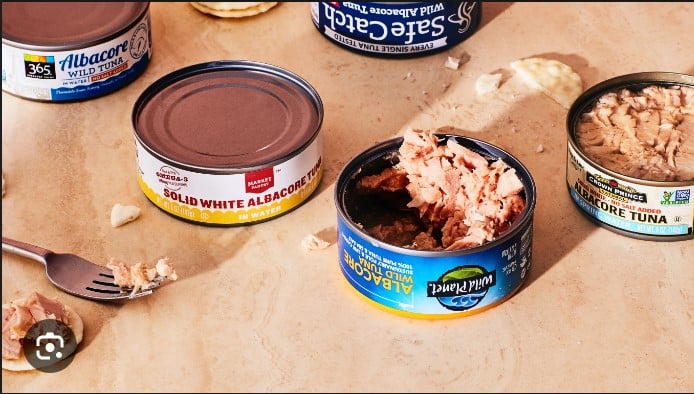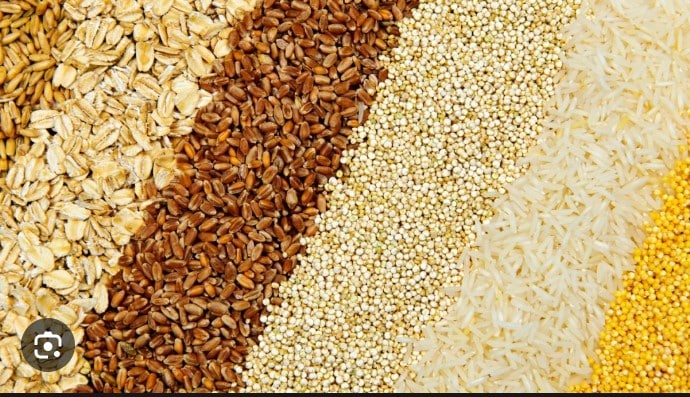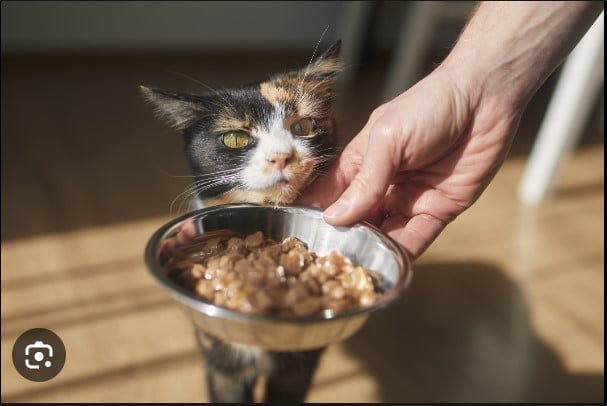Cats are often choosy about their food, but they still might be curious to taste new things. Your cat might want to try what you’re eating, but it’s important to know that some foods can be harmful to them. While there are many human foods that are safe for cats, there’s also a lengthy list of foods they should steer clear of because they can be toxic. In this post, we have listed 10 Human Foods you Shouldn’t Give your Cat. We discussed the dangers of giving your cat Alcohol, Chocolate, and even their favorite; Milk! Additionally, we highlighted some human food cats can eat.
Humans and cats both need diets with water and protein. However, beyond that, their nutritional needs are quite different. Cats can be seriously harmed by many human foods. Thus, leading to digestive problems, lack of essential vitamins, anemia, and even life-threatening conditions. While your curious cat might be interested in the aroma of your cooking, it’s crucial to understand how the ingredients could impact their health. Some harmful ingredients may be obvious, while others might be less familiar. Take xylitol, for instance, a sugar substitute found in various common foods like peanut butter, yogurts, and candy. It’s challenging to detect on food labels and can be extremely dangerous if consumed by dogs and cats. We shall now discuss some of these harmful foods.
See also: Cat Toys for Different Life Stages
10 Human Foods you Shouldn’t Give your Cat
Generally, there are certain food you should never give you cats, not even in small quantities. Some of these foods are:
Alcohol
Any kind of alcohol can be harmful to cats. Even a small taste is not deadly, but a large amount can be dangerous. If you’re having a party with alcohol, make sure to clean up well and don’t leave open containers around, as your cat might drink more. It’s not just alcoholic drinks that can cause alcohol poisoning in cats. They could also be exposed to alcohol from hand sanitizer, mouthwash, fermenting fruits, and dough with yeast.

Chocolate
Chocolate is not safe for cats and can cause serious problems for them. Cats may not be interested in chocolate, but anything with cocoa or chocolate chips can be harmful to them. If pets eat chocolate, they might have diarrhea, vomit, heart issues, high blood pressure, and difficulty breathing.
The danger of chocolate depends on the amount. Milk chocolate is usually less harmful because it has more milk fat, but the darker the chocolate, the greater the risk. The quantity matters too. A large dog eating one milk chocolate chip might be fine, but if they eat three milk chocolate bars, it’s a different story. You can use a calculator to check the risk based on your pet’s weight, the type of chocolate, and how much they ate. Keep in mind that this calculator is for dogs, not cats, and the effects can vary between species. Always contact your vet right away if your cat or pet eats something toxic.
See also: A Comprehensive Guide To Raw Cat Food
Milk and Dairy Products
As cats grow up, they can’t digest dairy well because they become lactose intolerant. If they eat a lot of dairy with lactose, it can cause stomach pain and diarrhea.
Fresh Coconut Flesh and Water
Giving pets fresh coconut milk and flesh might upset their stomachs, but a little bit is probably okay. However, coconut water has too much potassium and can be unsafe for pets. Coconut oil could be useful for certain skin problems in cats, but it’s important to check with your vet before trying it as a natural remedy or adding it to your cat’s diet.
Coffee and Caffeine
Cats are really sensitive to caffeine, and it depends on how much they have. A few accidental licks might not be a big issue, but if they have more, it’s urgent to go to the vet. Signs of caffeine poisoning show up in the first 30 minutes and can last up to 12 hours.
Be careful with things like dropped coffee beans, as they’re very risky for cats. Coffee and caffeine are poisonous and can even be deadly for small animals. Watch out for caffeine in other foods or things like black tea that may not be obvious.
See also: 10 different Cat Breeds and their Personalities
Canned Tuna
Giving your cat only canned tuna regularly is not good because it lacks the essential nutrients they need, which can lead to malnutrition. Too much tuna also raises the chance of mercury poisoning.
If your cat enjoys the taste and smell of tuna, it’s better to offer them cat food made with tuna that’s suitable for regular consumption. These pet foods are required to have the necessary vitamins and minerals for cats, ensuring they get the right nutrients and satisfy their cravings.

Citrus
Cats really don’t like citrus, similar to how dogs react. People sometimes use it to stop bad behaviors in cats. But, don’t use it directly on or near your cat! The strong oils in citrus, like limonene and linalool, can bother their nose and throat.
If a cat eats citrus, they might have stomach issues and irritated skin. Be cautious if you use a diffuser with essential oils at home—stay away from citrus scents! This is on of the most dangerous among the 10 Human Foods you Shouldn’t Give your Cat.
See also: Best Cat Grooming Accessories
Grapes and Raisins
Grapes and raisins are known to be harmful to dogs in different amounts. The ASPCA Animal Poison Control Center recommends not giving any grapes or raisins to pets because their toxic effects are not fully understood. To be safe, it’s best to keep these fruits away from your cat.
Raw Eggs
While it’s okay to give cats cooked eggs in small amounts, raw eggs can be harmful to both dogs and cats due to the risk of Salmonella and E. coli. Also, the egg whites in raw eggs contain a protein called avidin, which hinders the absorption of biotin (a form of vitamin B) in the digestive system, leading to potential long-term nutritional problems and overall health issues.

Human Food Cats Can Eat
While we have discussed foods you should never give your cat, there are some human food that are not poisonous to your cat. Some of them are;
Fruits
Cats can have a little bit of most fruits, but it’s important to keep it small. Fruits have a lot of sugar, and if cats eat too much, they could become overweight or get diabetes. Always wash fruits well before giving them to your cat, and take out parts like the peel and seeds that might be tough to chew and swallow.
Some fruits that are okay for cats to eat include apples, bananas, watermelon, berries, pineapple, and pears.
See also: 10 different Cat Breeds and their Personalities
Vegetable
Cats are meat-eaters, so they need animal protein for all their essential nutrients. Their bodies aren’t made for fruits and veggies, but some vegetables can be given to them occasionally in small amounts. These veggies have vitamins and minerals that might be missing in meat, and they could be good for cats that need to lose weight because they have a lot of water, low fat, and low calories.
Some safe vegetables for cats include carrots, cucumber, celery, green beans, and lettuce.
Cereal and Grains
Just like fruits and vegetables, cats don’t require carbohydrates in their diet. But, giving them whole grains and wheat cereals in their natural form can be good because they have vitamins, fiber, and iron. However, these should only be given as occasional treats and not as a daily part of their diet. Foods like rice and oatmeal are okay for them.

Meat
Meat is full of animal protein and amino acids, which are essential for cats. You can give your cat any cooked meat, but make sure it’s plain, without sauces or seasonings. Boiling, grilling, or baking are good ways to cook it, but avoid frying because it has too much fat. Also, make sure the meat is well-cooked to kill any viruses or bacteria that might be on it.
See also: 10 Effective Puppy Training Tips
Fish
Fish is packed with vitamins, minerals, and essential fatty acids that are good for your cat. It’s best to boil the fish, cut it into small pieces, and serve it without any seasonings. Choose fresh-caught fish over farm-raised, and be very careful to remove the skeleton and bones.
Conclusion
If you think your pet ate something harmful for cats, like human food, call your vet for help. Small amounts might be okay, but larger amounts could need urgent care. Remember, human food should only be an occasional treat and shouldn’t be more than 10% of your cat’s daily calories. We have now talked about the 10 Human Foods you Shouldn’t Give your Cat. We hope we have opened your eyes to the dangers of these food to your cat.
See also: https://www.humanesociety.org/resources/plants-and-food-can-be-poisonous-pets

